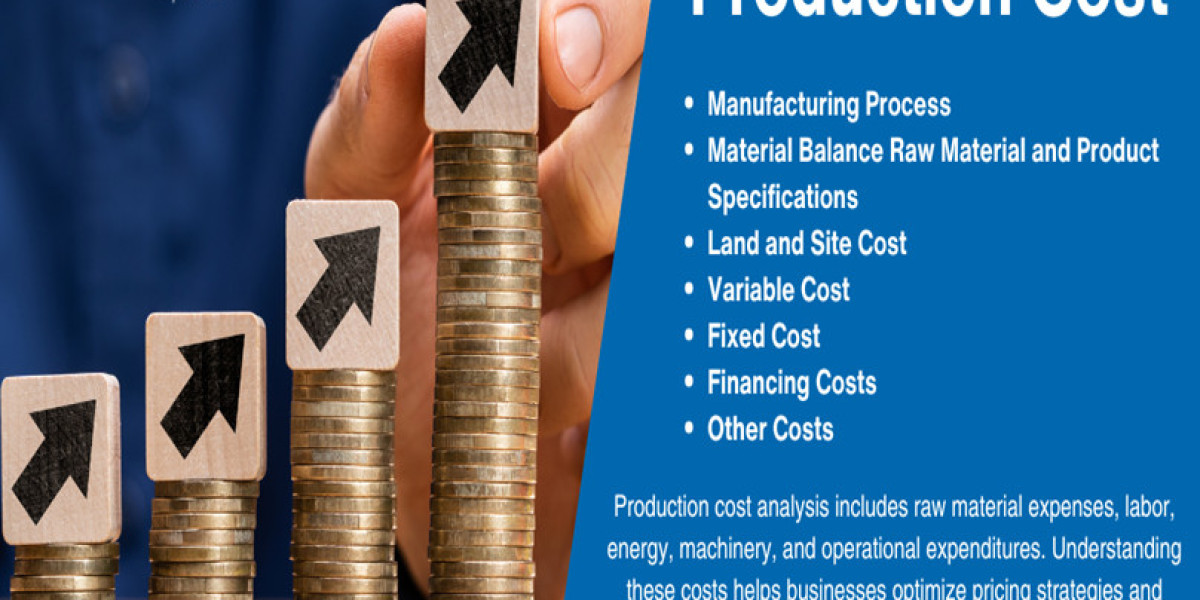How Healthcare Business Intelligence Consulting Drives Pharma Success
What is Competitive Intelligence in Pharma? Navigating a Rapidly Evolving Industry with Strategic Insights
In the fast-paced and highly regulated world of pharmaceuticals, staying ahead requires more than just scientific innovation. Strategic decisions must be backed by deep market understanding, data-driven insights, and competitor tracking. This is where competitive intelligence in pharma becomes indispensable. But what is competitive intelligence in pharma, and why is it increasingly crucial for decision-makers in the life sciences industry?
This article explores the definition, importance, key players, and how organizations are leveraging competitive intelligence in pharmaceuticals to stay competitive, compliant, and customer-focused in an ever-changing market landscape.
What is Competitive Intelligence in Pharma?
Competitive intelligence (CI) in the pharmaceutical sector refers to the systematic collection, analysis, and interpretation of data about competitors, market dynamics, product pipelines, regulatory trends, and other external factors that influence business performance. Simply put, it’s about transforming information into actionable insights to make informed strategic decisions.
When asking "what is competitive intelligence in pharma?" it's important to understand that it goes beyond just tracking competitor drugs or clinical trials. It involves monitoring:
Market share shifts
Licensing and M&A activity
Emerging therapies and technologies
Regulatory approvals and rejections
KOL (Key Opinion Leader) sentiment
Patent expirations and generics threat
Pricing and reimbursement strategies
The goal is to anticipate competitor moves, identify opportunities, mitigate risks, and refine go-to-market strategies.
Why is Competitive Intelligence Important in Pharmaceuticals?
The pharmaceutical industry is characterized by long development cycles, high R&D investments, and strict regulatory scrutiny. A single competitor’s breakthrough or FDA approval can significantly disrupt the market. Hence, competitive intelligence in pharmaceuticals serves as a vital tool for:
R&D alignment: Ensuring pipeline developments are aligned with market needs and not duplicative of others’ work.
Strategic planning: Guiding M&A, licensing, and portfolio management strategies.
Risk mitigation: Anticipating and preparing for competitive threats or regulatory shifts.
Marketing and launch excellence: Supporting differentiation and positioning in an increasingly crowded marketplace.
CI enables pharma leaders to shift from reactive to proactive decision-making—an edge in a landscape where being first to market or fast to adapt can determine commercial success.
Role of Competitive Intel Firms
Given the volume and complexity of data involved, many pharmaceutical companies rely on competitive intel firms specializing in life sciences. These firms offer tools, platforms, and services to help clients analyze competitors’ clinical trials, patent filings, financial activities, and more.
Top competitive intel firms offer the following capabilities:
Real-time tracking of global clinical trials and drug pipelines
Intelligence dashboards with therapeutic area-specific insights
Alerts on regulatory changes or competitor activity
In-depth competitor profiles and SWOT analyses
Forecasting models and market simulations
These services allow pharma companies to monitor their competitors efficiently while saving time and resources.
Integration with Healthcare Business Intelligence Consulting
Healthcare business intelligence consulting plays a broader role in supporting decision-makers across the pharmaceutical value chain. CI is one part of this ecosystem. While CI focuses specifically on competitors and market trends, healthcare business intelligence consulting looks at broader data analytics strategies—including internal data such as sales performance, physician engagement, and market access trends.
Leading healthcare business intelligence consulting firms help integrate competitive insights with business intelligence platforms, enabling seamless decision-making across commercial, medical, and R&D functions.
Some consulting firms also specialize in building customized CI frameworks, integrating third-party data sources, social listening, and predictive analytics to provide a holistic market view.
Pharma Intelligence Service: Tailoring Insights for Strategy
Many pharma intelligence service providers now offer modular, subscription-based services tailored to the needs of pharmaceutical stakeholders. These can include:
Disease landscape and epidemiology reports
Competitive landscape analysis for specific indications
Pipeline assessments and launch trackers
Brand strategy benchmarking
KOL mapping and engagement insights
These pharma intelligence service offerings are particularly valuable for mid-sized companies, consultancies, and investors who need expert insights without the overhead of an in-house CI team.
Such services are critical not only for commercial teams but also for regulatory affairs, business development, and medical affairs, ensuring a shared understanding of competitive dynamics across the organization.
Pharmaceutical Intelligence for Consultancies
Management consultancies serving the life sciences sector heavily rely on pharmaceutical intelligence for consultancies to deliver high-impact strategy projects. Whether it's evaluating an acquisition target, supporting a product launch, or assessing therapeutic area expansion, consultancies need high-quality, timely, and accurate competitive intelligence.
Pharmaceutical intelligence for consultancies often comes from specialized databases, interviews with KOLs, secondary research, and proprietary models. The information is then synthesized into strategic recommendations for clients.
This intersection of data and strategy makes CI a critical input for consulting deliverables, especially when advising on market entry, competitive positioning, or pricing strategy.
Tools and Technologies Driving Competitive Intelligence in Pharmaceuticals
Today’s CI professionals are empowered by advanced technologies that make intelligence gathering and analysis faster and more accurate:
AI and Machine Learning: Automate signal detection, trend spotting, and predictive analytics.
Natural Language Processing (NLP): Extract insights from unstructured sources like scientific literature or social media.
Data visualization platforms: Help stakeholders consume complex insights easily through interactive dashboards.
Cloud-based CI portals: Allow for collaborative intelligence sharing across global teams.
These technologies are transforming competitive intelligence in pharmaceuticals from a tactical function to a strategic cornerstone of pharma success.
Challenges in Implementing Competitive Intelligence
Despite its advantages, CI implementation in pharma is not without challenges:
Data overload: Filtering signal from noise remains a major hurdle.
Cross-functional silos: CI insights are often underutilized due to poor integration across departments.
Changing regulations: Data privacy laws like GDPR can limit data access.
Resource constraints: Smaller firms may lack dedicated CI teams or tools.
Addressing these challenges requires not just tools but a CI culture that promotes continuous learning, strategic curiosity, and collaboration across teams.
The Future of Competitive Intelligence in Pharma
The future of competitive intelligence in pharma will be shaped by increasing integration with real-world evidence, patient-centric data, and digital health trends. As more therapies target rare diseases, niche indications, and personalized medicine, the need for hyper-targeted competitive insights will only grow.
Furthermore, the rise of biosimilars, generics, and value-based care models is making competitive intelligence even more crucial to sustainable growth and market differentiation.
We can expect greater adoption of predictive analytics, machine learning, and real-time intelligence platforms that empower companies to act faster and smarter.
Final Thoughts
So, what is competitive intelligence in pharma? It’s more than market monitoring—it’s a strategic enabler, a compass that guides pharma companies through the uncertainties of innovation, competition, and regulation.
With the support of competitive intel firms, healthcare business intelligence consulting, and tailored pharma intelligence service, companies can access accurate, real-time, and actionable insights. For consultancies, pharmaceutical intelligence for consultancies ensures data-backed decisions for their clients. And for the broader industry, competitive intelligence in pharmaceuticals remains the key to thriving in a complex and competitive environment.
In an industry where innovation is relentless and the stakes are high, competitive intelligence isn’t optional—it’s mission-critical.
Latest Reports
Achondroplasia Market | Acral Lentiginous Melanoma Market | Ada-scid Competitive Landscape | Adrenal Cortex Neoplasms Market | Adult Spinal Deformity Market | Aicardi-goutières Syndrome Market | Anemia Market | Angelman Syndrome Market | Angioimmunoblastic T-cell Lymphoma Market | Ankylosing Spondylitis Bekhterevs Disease Market | Anovulation Market | Anterior Uveitis Market | Atherosclerotic Cardiovascular Disease Market | Bacteremia Market | Bcl-2 Inhibitors Market | Braf-mutant Metastatic Melanoma Market | Bronchiectasis Market | Bullous Pemphigoid Market | Burkitt Lymphoma Market | Cdkl5 Deficiency Disorder Market | Centronuclear Myopathy Market | Chlamydia Infections Market | Chondrosarcoma Market | Chronic Constipation Market | Chronic Hepatitis Delta Virus Market | Chronic Pulmonary Infections Market | Chronic Refractory Cough Market | Clostridium Difficile Infections Cdi Market | Clostridium Difficile Infections Market | Cluster Headaches Market | Community-acquired Pneumonia Market | Contact Dermatitis Market | Cushing Syndrome Market | Cutaneous Lupus Erythematosus Market | Dermatomycoses Market | Dermatomyositis Market








